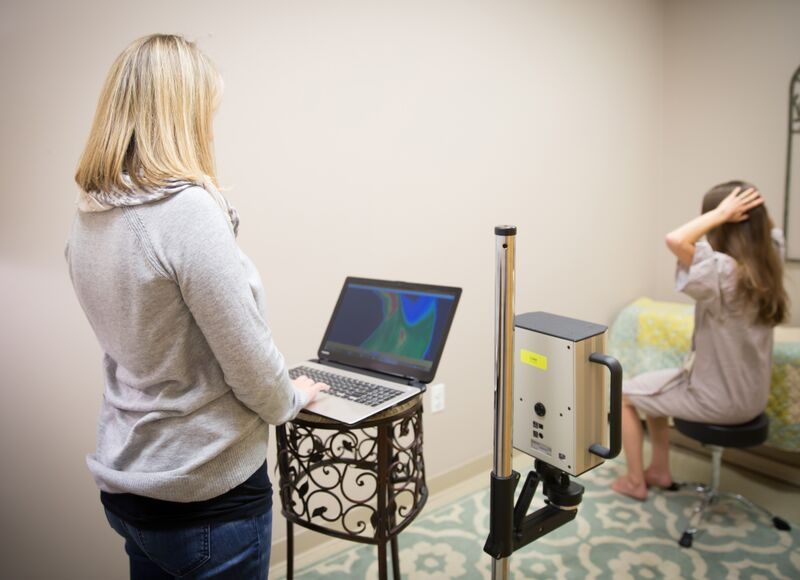The density of breast tissue is now being recognized as a risk factor for developing breast cancer. Women with dense, and especially those with very dense, breast tissue have an increased risk of developing cancer of the breast. The more disturbing fact is that breast cancer is much more difficult to detect with routine mammogram when the breasts are dense and so diagnosis can be delayed.
80% of women have dense breasts between the ages of 30 and 50
Dense breast tissue has greater proportions of epithelium and connective tissue than non-dense breast tissue, which is composed of more fatty tissue. 80% percent of women have dense breasts between the ages of 30 and 50.
Mammography – A Catch 22 for Dense Breast Tissue
Dense breast tissue appears as a solid white area on a mammogram, and fat appears as a dark area. Tumors also appear white. Mammogram X-rays do not penetrate — or “see through” — dense tissues as well as they do through fat because there is no contrast. So, in women with dense breasts, mammograms may be more difficult to interpret.
Traditional Mammogram is a 2 dimensional X-ray. With the newest mammogram technology, the camera rotates to take multiple X-ray exposures which are then rendered into a three-dimensional image which can be better analyzed. This new test, called Tomosynthesis or 3D Mammogram, increases cancer detection and decreases false positive results, compared to 2D mammogram but the test involves twice the radiation. This new test may not be covered by insurance unless the 2D mammogram confirms dense breast tissue. This is a further increase is radiation exposure. Radiation is a known CAUSE of cancer and it seems that the radiation in X-rays is more likely to cause cancer in women with the BRCA ½ gene.
So you might now find yourself in a quandary -if you have dense breasts, you have more risk for breast cancer but having mammograms increases your breast cancer risk and is limited in finding tumors, especially when tumors are very small. Routine mammography has also done little to improve long-term breast cancer survival rates.
The American Cancer Society recently changed its recommendation for annual mammograms beginning at age 45 instead of 40. Mammogram remains the gold standard. So cancer prevention is a better approach for women, especially women with dense breasts.
Breast Thermography For Dense Breasts
The Midwives of New Jersey offer breast thermography in our office as an adjunctive screening test to mammogram that can be performed at any age (as early as 20 years old) and with any level of breast density. Thermography is able to give a woman information about her breast tissue that could lead her to make lifestyle changes that improve breast health. For example, a thermogram report might show generalized inflammation of the breast tissue which might lead her to decrease sugar consumption and increase her exercise.
There is no easy answer. We cannot pretend that breast cancer does not exist or that it will never happen to us. Because mammography is so limited in its ability to detect cancer in dense breasts, it is better to take more proactive approaches such as monthly self-breast exams, breast thermography, and most importantly choosing to live a healthy lifestyle.







 One Mom’s Story of Weaning
One Mom’s Story of Weaning
